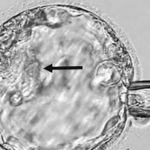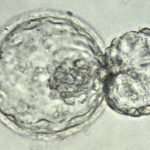Polycystic Ovarian Syndrome (PCOS) is a condition where a woman’s ovary produces an excess amount of hormones, typically male hormones (androgens). See my prior blog post (link to Understanding PCOS) to learn more about what PCOS is.
The most common cause of trouble conceiving in PCOS is typically linked to issues with ovulation (not ovulating every month manifesting in absent or very irregular menstrual cycles). In PCOS, there’s no shortage of eggs, in fact the issue is quite the opposite in that the ovary just never gets the signals it needs to select an egg to grow and eventually ovulate. When the egg doesn’t get released from the ovary, then the sperm has no opportunity to fertilize it!
These PCOS patients often require fertility treatment to induce ovulation to conceive. If you’re experiencing hard to predict or erratic cycles every month,predicting ovulation can be challenging, so seeing a Fertility specialist at the beginning of your trying to conceive journey is a good idea. Medications like Clomid or Femara can be used to activate the necessary signals the ovary needs to help you grow and ovulate an egg. While these lesser invasive options are a great initial step in fertility treatment, they still may not lead to success and IVF may be recommended. Some patients opt to proceed directly to IVF, while others decide to try the less invasive options first.
To try to figure out the best path for you, make an appointment to see a Fertility specialist to talk about treatment plans that work for you.






